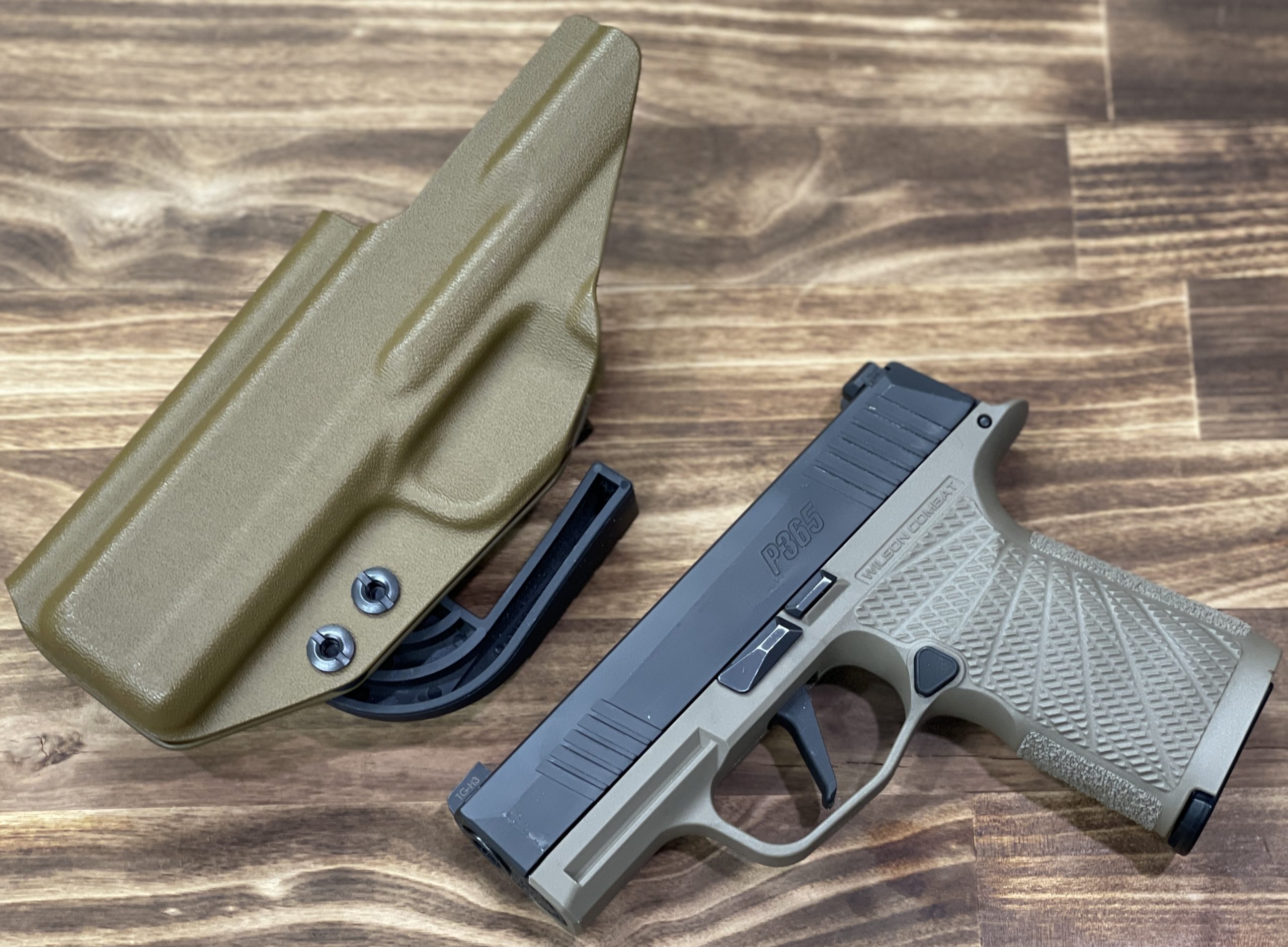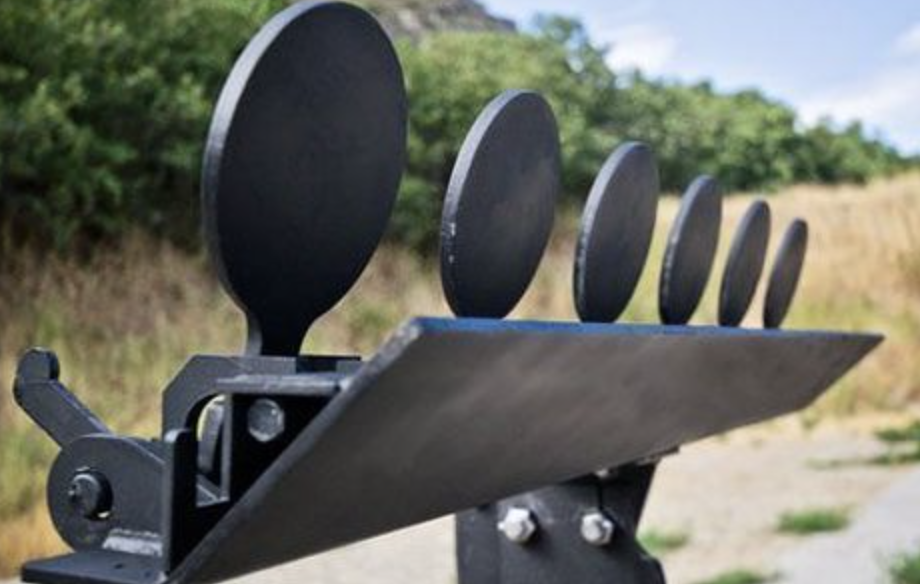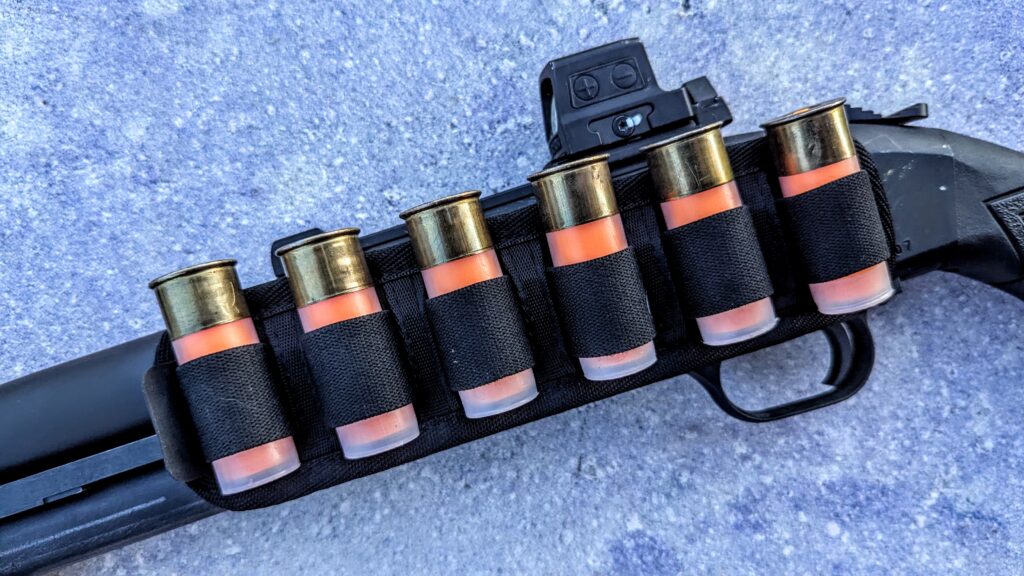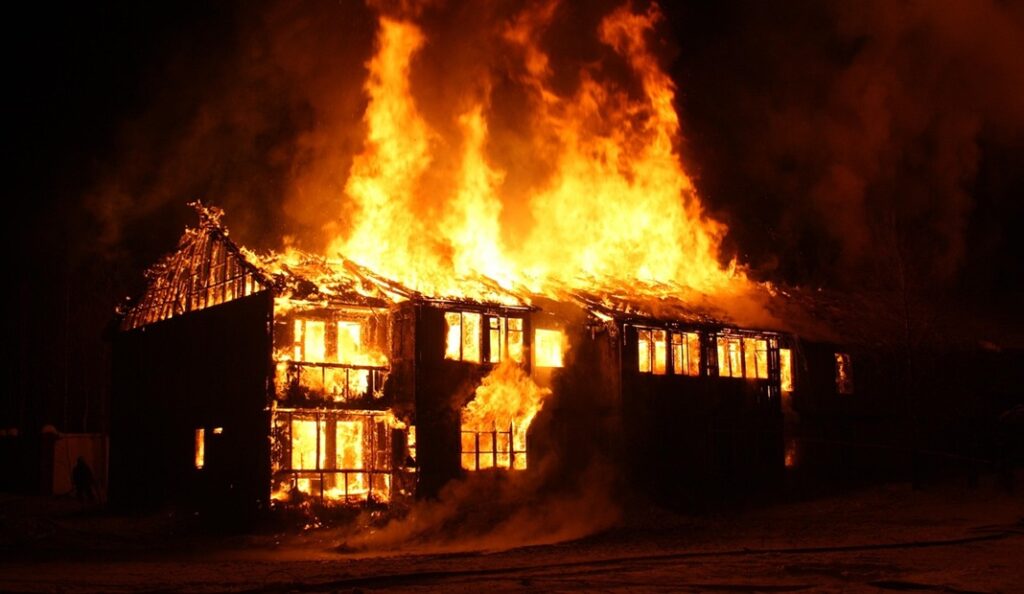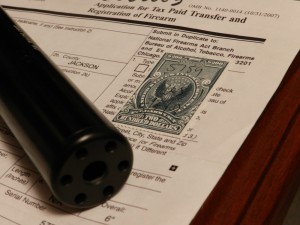‘Politics over safety’ The Politics of “Safety”: the pro-gun laws giving Americans easier access to firearms
I needed to fix The Guardian headline here as they lose their minds of Constitutional Carry flourishing in state after state. And, oddly enough, in each of those states we don’t get explosive waves of new crime, or random murder spikes, or any of the other ‘blood in the streets’ fear-porn narratives anti-gunners like to parrot.
Does this mean getting rid of concealed carry permits is objectively ‘safer‘ than permits? No, that isn’t the conclusion to draw. The conclusion to draw is that the permitting systems didn’t produce any additional safety. They didn’t prevent crimes by deny permits to troublemakers through the background checks, fees, and wait times.
What did they do then?
Advertisement — Continue Reading Below
Provide state revenue and allow for defacto methods of denying second amendment rights to people because they didn’t pay the tax. It turns out responsible people are still pretty responsible even if you don’t tax them for it. It also turns out, that even despite my concerns years ago, that people who would take training for safety and carry to get a permit are still interested in that training when it isn’t mandatory. Turns out the training industry is also the entertainment industry and learning to shoot well is… wait for it… fun!
We spend a metric boat-load of money on fun. So why would training that happens to benefit your personal safety be left off that list when it is fun.
Anyway, let’s dive into The Guardian’s hot take…
Advertisement — Continue Reading Below
Subheading: Called ‘constitutional carry’ or ‘permitless carry’, the bills have been criticized by police and activists who say removing permits poses a safety risk
Criticism is not the same as valid criticism. Valid requires data to support the fact that removing permitting requirements for gun owners to carry their firearms will result in significant harm via increased violence or increased accidents. This argument always predicates on the idea that people aren’t doing this already. That people aren’t carrying without a permit, or carrying with expired permits, and that only those people cause problems.
That’s hogwash. Heck, the data we have on the data (checking research methodology) that we have says most studies are too poorly performed to draw a conclusion from. So where are they getting the information that requiring a permit works? Their feelings?
This is the politics of making people feel safe. In this case, sound like people are safer instead of actually being safer. That’s the permitting scheme, it feels reasonable without a lot of data saying the theory proves out. If permits were the key we would see significant differences between the behaviors of permitted and non-permitted people. We don’t. We see the behavior differences between mostly peaceable people and those who choose otherwise, the law just attempts to reflect and codify these behaviors and consequences for them.
Advertisement — Continue Reading Below
In some cases the law aligns with success (prohibition against murder) and others not so much (prohibition against alcohol). One reflects human attitudes. It is human to prohibit killing people without justification or consequence, use of force must be just. The other, prohibition, was a nebulously moralistic virtue signal that a whole country basically laughed at.
America’s relationship with guns will probably never be peaceful, but as a rash of new pro-gun laws spread across the country some fear it could soon be legal in as many as 25 US states to carry a concealed gun without a permit.
What about carrying a firearm is unpeaceable? And no, our “relationship” with a weapon is probably never going to be peaceful, it is meant to keep the peace. Keeping the peace can means returning to a peaceful state, what state are you returning to peace from?
Advertisement — Continue Reading Below
Violence, obviously. No, you will not have a peaceful relationship with a tool meant for violence. The undertone here is that violence is never justified, and that is utter crap. There are plenty of situations in which violence from an individual, a group, or the state are absolutely justified. That’s what keeping the peace is, the judicious and necessary use of force without the abuse of force.
To gun control advocates and law enforcement it’s a dangerous new development in America’s enduring, historic and highly politicized infatuation with personal firearms.
Of course gun control advocates don’t like it, it clashes with their Utopian fantasy of ‘nothing bad would every happen if guns didn’t exist in private hands.’ Or to whatever personal variation their delusion subscribes. Personal arms are as old as human history. Modern arms are firearms.
Advertisement — Continue Reading Below
We continue to live in the objectively most peaceable time period in human history despite these “weapons of mass destruction” being prevalent and popular.
There is an equally and arguably far more distorted politicized fear of firearms as there is any infatuation with them.
To gun ownership supporters, it’s a rational response to threats to the second amendment that force law-abiding citizens to undergo police fingerprinting and background checks.
Advertisement — Continue Reading Below
Stated in this way, like these are ‘no big deal’ and ‘why are these unreasonable?’
Well…
The government shuts down for COVID and stops processing applications and renewals just because (Michigan), or is so backlogged and behind on applications they are clearly incapable of processing them in a timely and efficient manner (Illinois). When the government is incapable of processing their part in the application and permitting process in a timely manner they have effective control through delay and denial.
Advertisement — Continue Reading Below
These mandated tasks, enacted by the states, are immensely disruptive to the time management of individuals trying to exercise their right to protect themselves by carrying an effective tool for that purpose. But what we don’t talk about are the months long waits for appointments, or the offices just being closed because of X or Y mandate with no workaround in place to complete the mandatory processes. The government can deny your right simply by not doing their part, and in many places there is no recourse if the government fails to do as they mandate they must. Only you are penalized, it doesn’t matter for them. Michigan’s governor just vetoed a bill which would impose limits and penalties on the government for failing to render the mandated services.
Can’t have that. That sounds like accountability.
Over the past month, Georgia, Ohio and Indiana have moved to abolish requirements for a background check and license to carry a handgun in public. Last year, six states – Arkansas, Iowa, Montana, Tennessee, Texas and Utah – enacted permit-less carry measures, according to the Pew Research Center. Many others are expected to follow as gun rights groups – often politically conservative – push similar plans.
Advertisement — Continue Reading Below
Nice dig at conservatives. Liberal gun owners benefit as well. Firearms rights are human rights afterall.
Georgia will likely sign their law today, making them the 25th state for constitutional carry. If permits and “background checks” were the ticket, we’d see it.
We don’t. Crime continues to be participated in by the motivated elements and legal gun ownership continues to try to conform to whatever the state mandates. The two don’t seem to hold more linked relevance than the common denominator of ‘firearm’ in their associated equipment.
Called “constitutional carry” or “permitless carry” by gun rights supporters, permit repeals are a totem in red states offering Republican candidates facing primary season and November elections an opportunity to burnish far-right credentials.
Ah, I’m just waiting for them to say Jan. 6th at this point. The far-right doesn’t need burnishing to shift the legislature into Republican hands, looking mildly competent at their jobs ought to do it for the middle ground voters. States removing burdensome tax processes, where the bureaucratic hangups actively discourage participation, is to be encouraged.
If the process was quick and reasonable, a tremendously substantial if, the argument could be made that permitting doesn’t present a substantial burden upon people. It might still be unconstitutional, but not in a way that actively discourages participation.
But the bills have been criticized by police and gun control advocates, who argue that removing permits poses a safety risk to citizens and law enforcement officers.
Prove it.
Show me the violent felons who would’ve been stopped from arming up by that almighty piece of plastic. Show me the hostile act that would have been stopped had the perpetrator been required to be licensed. Heck, show me a few felon in possession charges that made it through, or a case where a failed background check actually resulted in putting them back behind bars because it made sense to get this dangerous individual who was trying to get a gun off the street again.
You want to know why NICS check failures largely get swept left (in the app sense), because they don’t pose enough risk to follow up on. A felon or other prohibited person getting denied is not considered enough of a risk on its own to warrant an investigation or an arrest. The individual must have a very egregious background or be part of some current investigation for a NICS failure to trigger action. That, by the way, could be done with a seperate system. Instead of a passive and vague background check it would be a smaller actively prohibited list where you would throw in red flags and total stops.
Personal Protection Order, on the list. Terrorist suspect under investigation? Flagged as notify or deny as warrants. But just “has a record” of some variety? Having a record means a conviction. A conviction means served a sentence. And after a sentence is complete that record should be informational, not prohibitive. That would constitute a true rehabilitative justice system.
“There’s a reason law enforcement officers overwhelmingly oppose permitless carry: it makes their jobs harder and puts their lives – and the lives of the people they’re sworn to protect – on the line,” said Shannon Watts, founder of Moms Demand Action.
Prove it.
Law enforcement officials in appointed positions certainly seem to tow the line of their appointing party. If the mayor doesn’t like it, they don’t either. However the rank and file aren’t worried about it. That permit isn’t going to make the difference between them getting shot at or not. Never has, and it never will. No officer got through a firefight or other deadly UoF situation and thought, ‘If only they’d had a permit to carry when they drew that handgun and tried to kill me, then they wouldn’t have.’
“When states dismantle permitting systems and gut gun safety laws, gun violence goes up. Gun lobby-backed politicians are shamefully putting primary politics over public safety, and the consequences will be even more devastation for their constituents and the law enforcement officers they pretend they support.”
Again, please point to the information that shows this and that correlates to permitting? This isn’t even to the level of firearm ownership, its carry. The step after ownership. The step that is so low risk the NICS denials are very rarely followed up on.
So what is the permit violation and denial rate?
Let’s take a look at Michigan for this.
As of March 18, 2022 there are 1,082,021 total permit processes for the state, 777,776 are active and 267,736 are expired.
If that sounds like most of them, it is. It is 96.6% of all permits. They’re either active or have been allowed to expire and no criminal action has been involved.
So, how many have been suspended, revoked, or withdrawn? For the purposes of this analysis we will associate those with negative violent actions. This doesn’t mean the actions were actually violent or hurt anybody, DUI/DWI is a suspend or revoke offense. Being diagnosed with a mental illness is too, and this should be seen as a positive step towards treatment. However we are still going to take the total, regardless of reason, to give the maximum theoretically possible numbers of prevented and non-prevented violent events.
8,193… total. That is just over 3/4ths of 1%, ever. Total assumed negative events for the Michigan CPL.
Now we enter all of the denied permits, 22,702 of those as assumed prevented negative events. Those denials, for any disqualifying reason, with the suspended, revoked, and withdrawn added in, total a daunting… 2.8% of all CPL’s in the state of Michigan. So assuming every single one of the denials prevented a negative action (utter garbage reasoning, but let’s stick with it) the state allowed 8,193 negative events to take place after issuing a license. Let’s not say allowed, we will say ‘failed to prevent’.
Again, we cannot make the assumption that every one of these circumstances were the preventing of, or reaction to, a violent event. But that is the math we are working with. To assume every denial is a prevention, which proponents 100% do (they do it with NICS initial denials all the time) is to assume every later revocation, suspension, or withdrawal is a failure to prevent.
They aren’t, in fact most of these in both the denieds and the revoked, suspended, or with
That is still a just over a 1:4 negative event per 4 total events. A 26.5% failure rate.
Again, this is completely bogus math because it makes a maximum assumption of worst cases and a maximum assumption of prevented negative outcomes. Neither of these are statistically sound assumptions, but it still covers the fact that at its best Michigan’s permitting system has a 26.5% failure rate to prevent a negative outcome but the negative outcome to positive outcome ratio is 1:50. The assumed negative outcomes are 2.09% of the total permits while their failure to prevent a negative outcome rate is 26.5%.
If that seems bad, it is. It means 96.6% of the time the permit was merely a tax, in the way, and did nothing positive for anything… except the state’s checkbook. For the times it is assumed to have done something positive, it also failed to prevent a negative outcome every four events. This makes the combined total non-effect rate of the system 97.81%. The times where the system was, at best, of no value and at worst failed to prevent the negative outcome. If the failure rate was congruent with the non-effect rate and only failed to prevent a small percentage of incidents this could still be argued for, but 26.5% failure? Seems like it isn’t doing its job and that we have other services more effectively in place for prevention and response.
But the momentum toward permitless is unmistakable, as new laws give millions of Americans increasingly unfettered access to firearms even as gun violence rises across the country.
Unfettered? I must’ve misplaced the date and time the National Firearms Act and Gun Control Act were both repealed, or even the Brady Act. Seems firmly fettered still even if we allow people who can legally own their firearms to carry them.
Texas went permitless in June when governor Greg Abbott, National Rifle Association boss Wayne LaPierre, and others gathered at the Alamo for a bill signing. “Government is coming to take your guns,” Abbott warned. “Texas will not let that happen.”
A politician making an easy underhand toss of a political statement, it would be more laughably partisan if the good Gov. Abbott didn’t have a point.
The measures have received a complicated response. If they are, as some have suggested, a political counter response to progressive-left calls to defund the police, they may inadvertently achieve that.
That feels like a stretch…
In Alabama, where legislation dropping legal penalties for carrying concealed firearms without a permit passed in the lower house on a 65-37 vote, the Alabama Sheriff’s Association and others complained that removing the permit requirement would also deprive police departments of revenue from permit purchases, typically about $75.
Yep, that’s where I thought this was going. How could we ever hope to fund our law enforcement without permit taxes!?
Indiana’s measure will allow anyone 18 or older to carry a handgun in public, unless they have a felony conviction, are facing a restraining order from a court or have a dangerous mental illness.
Huh, unless they are disqualified from owning a gun. Imagine that being the legal bar to carry it too. Extremist craziness right there. Absolute lunacy. [/sarc]
Indiana’s state police superintendent, Doug Carter, said that approval of the measure, which will take effect 1 July, “does not support law enforcement, period”. But the Republican governor, Eric Holcomb, said the permit repeal bill “entrusts Hoosiers who can lawfully carry a handgun to responsibly do so within our state”.
Old man yells at cloud? Simplifying the application of law and making it more consistent would, to my mind, make an officer’s job easier. Less tiers of rules to enforce.
Do they have a gun? Yes or no? Should they, legally? Yes or no?
under this rule it doesn’t much matter where they are with that gun, or if they do or do not have a piece of plastic with their photo on it. That tax card is, at best, a poor predictor of their current or future problematic behavior. But proponents will absolutely sing of its sacrosanct necessity for safety.
In Georgia, the Republican governor, Brian Kemp, also facing election this year, has argued that residents should have their rights protected – and be able to protect themselves and their families amid a spike in violent crime. Others in the party have cited civil unrest seen in a few 2020 protests over racial injustice in Atlanta.
We have seen an across the board spike in personal firearms interest, this move helps all communities where legal owners may also now be legal carriers. Illegal owners and possessors cannot be legal carriers so the flip side of the argument is fairly moot.
“This bill gets the government out of our way and allows us to do what we need to do in these precarious times,” said state politician Mandi Ballinger, the Republican sponsor of the Georgia bill.
David Yamane, author of Concealed Carry Revolution: Liberalizing the Right to Bear Arms in America, said the recent sweep of state-level gun liberalization follows a long trend. “From the early 1800s to the 1980s, the concealed carry of firearms was restricted because people thought nothing good comes of people carrying guns hidden on their person,” he said.
You mean the whole attitude was… a prejudicial one? I. am. shocked… this is my shocked face.
That the mere carry of a discreet firearm is an act of hostility and not a response to it? That attitude conveniently avoids all the discreet manners that were developed to carry firearms in ‘approved’ manners by ‘approved’ people (usually the government or the affluent). Those fine upstanding folk would never abuse the exclusivity they hold to arms, would they?
Wounded Knee and Waco only both had higher death tolls than Mandalay Bay.
After that time, states started to loosen their laws, first passing laws saying license issuing authority “may issue” licenses, which gives the authority discretion, then moving to “shall issue”, meaning the state does not have discretion and anyone who meets statutory requirements will be issued a permit, then to “permitless carry.”
‘Discretion’ only works when your government is beyond reasonable reproach for prejudice, favoritism, cronyism, or any other unfair application of a discretionary policy. Discretionary policies and “may issue” should always carry a, “shall be abuse” disclaimer that lists out the negative possible abuses by issuing authority. Oh wait, that would be accountability and pushes you into shall issue instead.
The shift toward unlimited or “permitless carry” started in Vermont and followed a track through Alaska and Arizona. “It’s really picked up steam in the last decade with the progression of the idea to make it easier for people to carry concealed firearms without restrictions,” said Yamane.
But Yamane cautions that “permitless carry” does not mean there’s no background check – only if you have a legal right to bear a firearm can you carry concealed in public. “It’s not throwing out all restrictions. You still can’t carry in federal buildings or on school property, and you still need to pass a criminal background check,” he said.
What it is really doing is making the carriage of a firearm in line legally with the standards of ownership. There is no sensical reason to have two standards for this in the legal system’s codes. It is complex, frustrating, takes up government time and money, and provided no identifiable or measurable safety benefit.
To Josh Horwitz, executive director of the Coalition To Stop Gun Violence, the legislation necessarily means that the more guns in public, the more dangerous it is for people. “The data shows that the relaxation of permitless carry laws has led to more gun violence and there’s no evidence of any protective factor. And remember every data point we look at is someone deceased,” he said.
Funny how the studies with data worth looking at don’t say that. In fact the most consistent thing they do say is they cannot say. Not enough data. Too few events. That’s right, even if ‘every data point you look at is someone deceased’ it doesn’t matter.
A. You are admitting you only look at deaths and not events where a life is saved, a grievous injury prevented, or a sexual assault prevented. So your data sucks.
B. With the number of deceased in the country, the best data models cannot find a negative correlation to non-permitted vs. permitted gun ownership. Crime just doesn’t shift that much due to permits (other than directly criminal violation via having or violating the terms of the permit). Other social factors have vastly more demonstrable authority over the number of deaths and injuries than licensure.
According to the CDC, more Americans died of gun-related injuries in 2020 than in any other year on record – 45,222. That figure includes a record number of gun murders, as well as a near-record number of gun suicides, which make up 54% of the total.
There were also more Americans period than in any other year on record. Firearm deaths, self-inflicted, accident, and homicide combined (they shouldn’t be, it makes no causative sense) didn’t even make top 10 causes of death for that year. COVID-19 claimed roughly 8 times that many people and heart disease got twice as many as COVID-19 did, with cancer being just behind. Diabetes is killing people at better than 2:1 compared to firearms.
Despite the increase in fatalities, the rate of gun deaths – a statistic that accounts for the nation’s growing population – remains below the levels of previous years.
Huh, look at that. Context.
The figures do not necessarily do justice to the politics of the issue, in part because the effect of loosened gun laws are not immediately apparent. But the momentum is clear: in New York “may-issue” laws are being challenged in supreme court, while state-level legislatures are pulsing with multiple challenges to guns restrictions, from Stand Your Ground – the right to self-defense – to permitless carry and red flag laws.
Yet these same people are ready to claim victory for every single advance in “gun safety” legislation regardless of measurable negative effects. Any and all of them are ignored because the rules are considered morally imperative by their political sect. Morally imperative > doing literally anything positive.
And the political context, says Horwitz, is unmistakable. “These laws are a signal from Republican legislatures to say, ‘I’m Trumpian, I’m as far-right as I can go.’ There was a time when many people in the Republican party were supportive of gun rights but they wanted them regulated. That’s gone out the window.”
Trumpian? The man who banned bump-stocks? The man who is quoted as “Take the guns first, go through due process second.” and “I like taking the guns early.”
Okay. Cool story.
Long story made painfully short, there is no evidence that loosening carry rights to coincide with legal gun ownership rules poses any substantive risk. It is just simple fearmongering.
